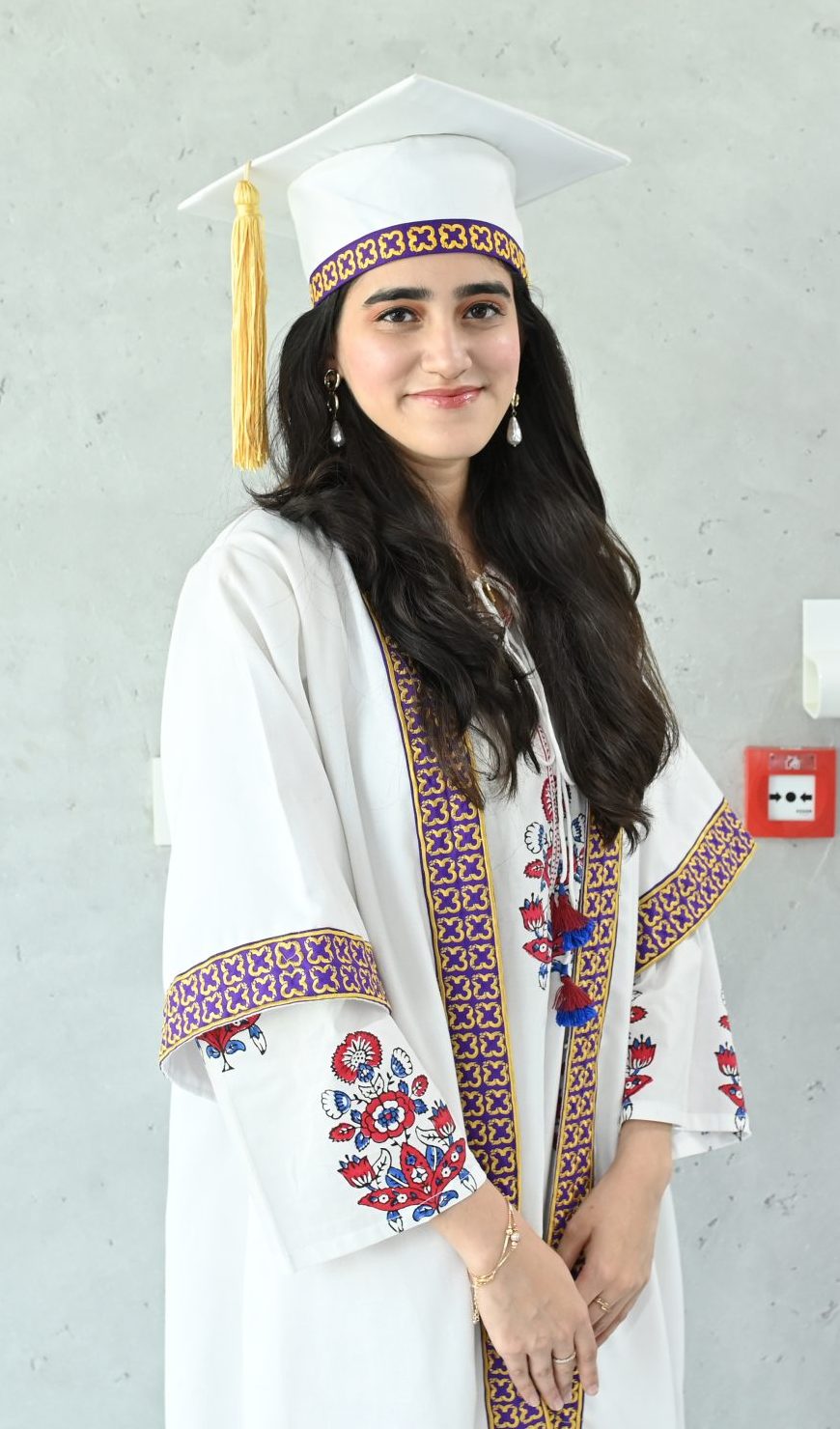
DUA MOHTASHIM
Aspiration Statement
An aspiring urban researcher passionate about working on data-driven projects at the intersection of urban planning, policymaking, and climate change. I enjoy engaging with stakeholders for producing sustainable, community-driven initiatives.
Core Skills
- Grant/Proposal & Report Writing
- Human-Centered Design (HCD)
- MAXQDA; Qualitative Research Analysis
- STATA & R
- Problem-solving
- ArcGIS/QGIS
- Adaptability
Academic Awards / Achievements
- Dean's List, Fall 2023
- Habib Merit Scholarship
Experience
Leadership / Meta-curricular
- Participant, Community-Led Design-Build Workshop: "Play - Pause - Ponder: Inculcating Childlike Spaces To Bring Joy To Everyday Mundanity" Organized By WM Creative Studio Re-Lab (December 2024 - January 2025)
- Marketing Head, Habib University CND Productions (January 2023 - May 2023)
- Academic Affairs Cabinet Batch Representative Social Development and Policy 2025, Habib University Student Government (March 2022 - March 2023)
Internship / Volunteer Work
- Retail Banking Intern, HBL (May 2024 - July 2024)
- Project Trainee, Folio3 (August 2023 - December 2023)
- Undergraduate Research Assistant, Habib University (June 2023 - August 2023)
Publications / Creative Projects
- Designed Request for Proposal on “Gendered Impact of Climate Change: Climate Resilient Interventions to Address Domestic Violence within Communities” : Legal Aid Society (LAS)
- Facilitator, Arts-Workshop: Empowering Through Green — Tackling Domestic Violence and Climate Change, Aamozish-e-Tehqeeq Conference: Habib University
Final Year Project
Project Title
Cities for All: Analyzing the Design and Inclusivity of Child-Friendly Public Spaces in Karachi
Description
The study examines whether Karachi’s indoor and outdoor public spaces meet the developmental needs and rights of children aged 3–8 amid rapid urbanization and global child-friendly city aspirations. In-depth interviews with mothers, architects, psychologists, and educators, were conducted and this data was triangulated with site visits to selected parks and play facilities. Thematic analysis of this qualitative data revealed multiple shortcomings: safety hazards (unsafe equipment, lack of supervision), poor maintenance (dirty or broken amenities), limited accessibility (distance, fees, age-inappropriate installations), and unstimulating play equipment. Common critiques included parks prioritizing adult needs over child play features and facilities, indicating that children’s rights to the city and sustainable development goals remain unmet. By linking these observations to urban theory, the study proposes an integrated child-inclusive design framework and offers actionable recommendations for planners and policymakers to improve public environments, advancing children’s rights and aligning Karachi’s urban planning with sustainability and equity goals.